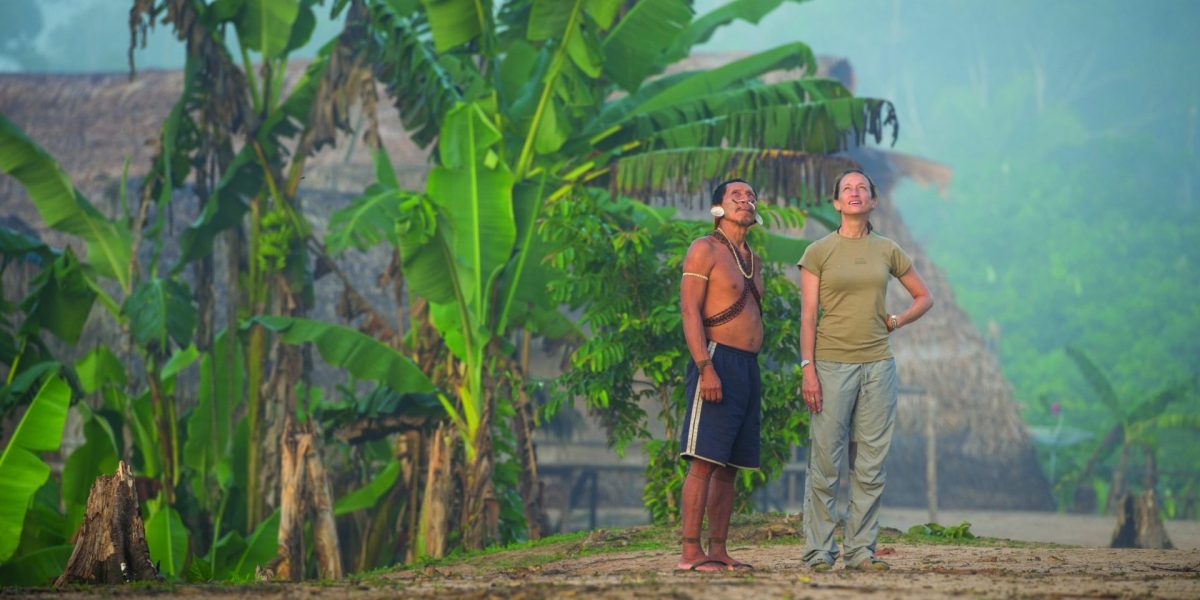The Woman Helping To Give A Voice To The Amazon
Filmmaker and explorer, Celine Cousteau, carries on an incredible family legacy set by her grandfather Jacques Cousteau, her father Jean-Michel Cousteau and her mother Anne-Marie Cousteau, an expeditionary photographer. With her creation of CauseCentric Productions, Celine has connected the dots between film, art, technology and education to create a platform of immense change in her own right though.
Photography By Michael Clark CauseCentric Productions
Her platform is currently shining a spotlight on the remote Vale do Javari region in the North-western portion of the Brazilian Amazon, led in the form of Tribes on the Edge, a film and campaign aimed at raising awareness about the critical needs of 5,000 Indigenous people from five contacted tribes and 2,000 uncontacted in about 13 distinct groups living voluntarily in isolation.
We talk to Celine about the connected nature of her work and the fact that what happens in places like the Amazon affect us all.
This year has been a year of phenomenal disruption, across many sectors and industries, but we seem to be more conscious of our connection with other tribes and the environment. Have you seen this shift?
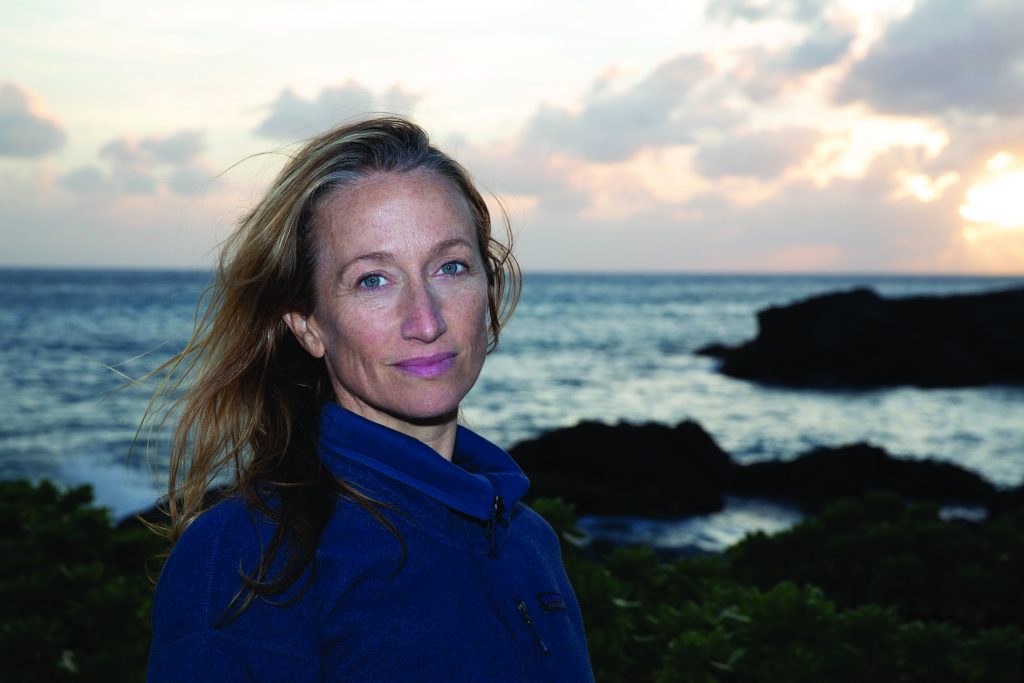
2020 certainly has been an interesting year. It’s funny that it’s 2020, when you think of our vision. What I have sensed is that there are three categories of people and this era has just brought out more of what that means.
I think there’s people who were always involved or interested or aware or conscious of our relationship with nature and the environment, and this time of reflection has just deepened that perhaps for some people, if they’ve had the luxury of using that time to focus on what’s most important. I think that has probably come up to the surface quite a bit.
I think the second category of people are those who never cared. I don’t think the pandemic changed that because caring and having that feeling of interconnection with everything in the world, I think is just something that’s within us. We can pull it out if it’s awake, but if it’s not awake at all, I don’t think our efforts are best spent there.
The third category are the curious people who’ve just asked questions and maybe never followed through and who have wondered, what’s happening with all these environmental issues? Or who have paid a little bit of attention to climate change or who have looked at indigenous rights, or looked at the issue of traceability in the oceans. They have peaked over that mountain and said,’ I wonder what else is going on?’
I feel that this is the group of people who have the most potential for shift, because it has been a time, if you think about it in very simple terms, it’s an unseen virus that has affected the entire world. This is the same thing we’re talking about with climate change. The virus has shown us in a simple way, what that looks like.
When we talk about climate change, when we talk about environmental degradation, we talk about the sea level rise, ocean acidification, deforestation; that gets really overwhelming, but it’s the same impact. It’s global. We’re all going to feel it, if we don’t already feel it.
That for me is an opportunity to say, ‘This is what we’ve been talking about.’ Perhaps we need to do a better job of it, but this virus is very symbolic of climate change, in that it connects all of us. This is the point.
It’s terrible what it’s done. The fear that it causes in people, the sorrow that it causes in people, the complete family dynamic change. A lot of people are leaving cities and deciding to move to the country. Anybody who’s got any phobia issues or any worries or anxiety, it’s probably been heightened.
I see the same thing is going to happen as the planet environment changes. There’s going to be fear, there’s going to be insecurity, there will be more illnesses. We’re going to have environmental refugees instead of out of the city refugees.
It’s a long-winded way to say that I think those who are at all curious have an opportunity to see what’s happening, but to get involved as well without the anxiety and the fear, because there is a lot that people can do.
You don’t have to think, ‘I have to save the planet.’ But I would say act out of your own passion. Ask yourself what really matters to you, and then see if you can extend your actions outside of yourself, into helping other people or helping people who are homeless in the street or dogs that need to be rescued.
I’m a very big proponent of ‘choose your cause’ because if you are choosing it and you’re passionate about it, you’ll do it every day. Don’t get on board with mine, unless it’s what you’re passionate about. Support me, that’s great, but I think each person really needs to see and ask themselves what really matters to them and then act on it.
It’s great to feel good, it’s great to put ‘likes’ on all the social media stuff, but it’s completely different to actually do something.
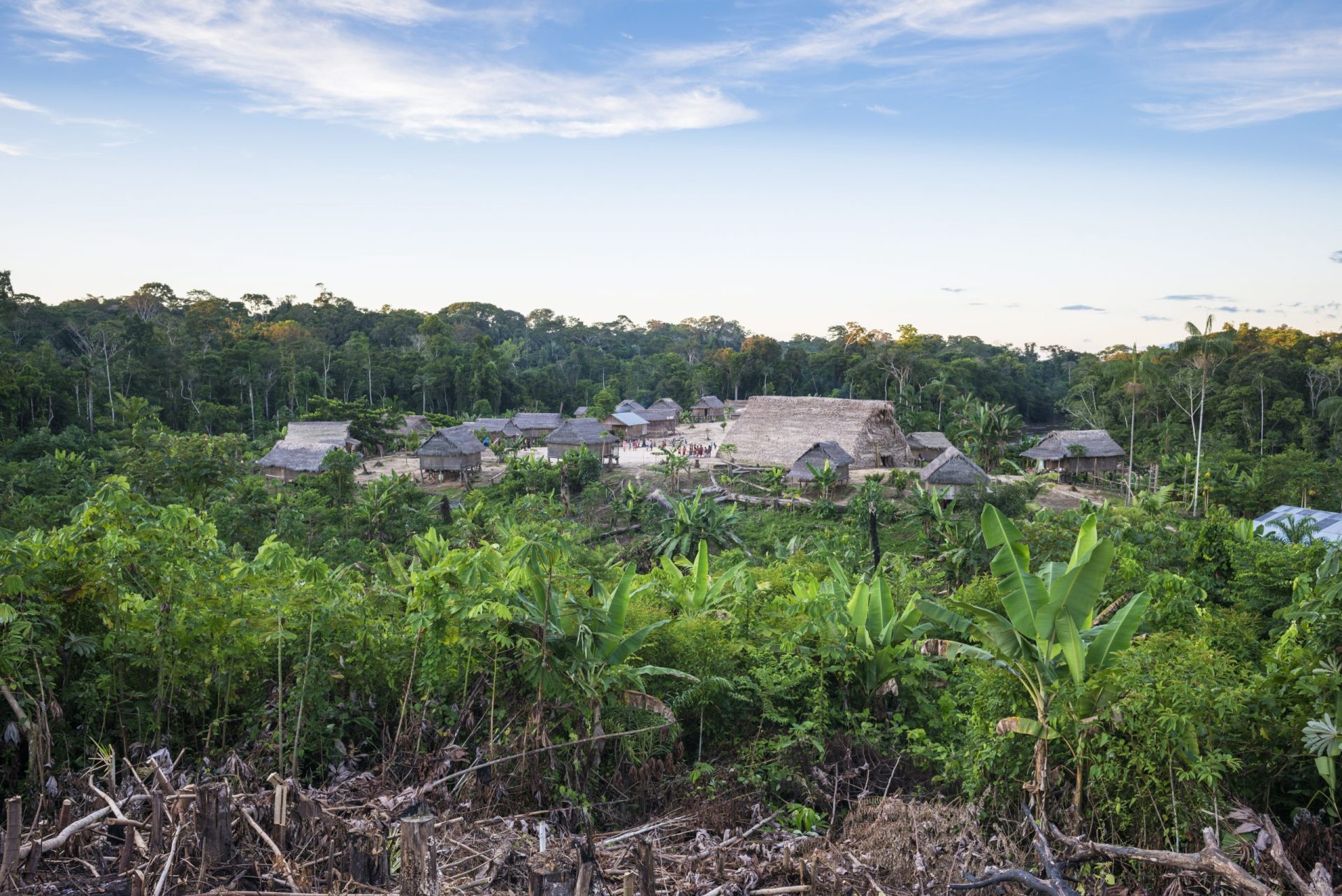
Even when we’ve got a global pandemic that shakes us and shows us how connected we are, not only to each other, but our own vulnerability; are you optimistic that that will be enough to shift?
It depends on the day. It depends on who I’m talking to that day. It depends on what I’m reading. It depends on how tired I’m feeling. It depends on if I feel like I’ve been repeating the same thing over and over again, and nobody’s listening.
The optimism question has come up a lot recently and I don’t think it’s a coincidence that I’m being asked if I’m optimistic. I realised the first time it came my way that I don’t know if I am optimistic, but I choose to be optimistic. There’s days that are much harder than others to be optimistic.
I know that there are plenty of people who are aware and who are taking action. I’m seeing that happen with the project that I’m working on in the Amazon, where I’m talking to 30 something impact entrepreneurs or startup entrepreneurs, and they are shifting and wanting to create a positive impact or they’re just more involved.
We’re seeing it with all of the youth who are speaking out because they actually have an easy platform to be heard now through the internet, through social media, etc. That gives me hope. That gives me optimism. Is it enough? Some days I think no.
If you walk around a big city and you look around, you wonder how many people are actually thinking about the same things I’m thinking about? How many people are worried today about what’s happening to the planet for the future of their kids or their grandkids or somebody else’s grandkids?
I think back to an author who I spoke to, and maybe I just like it because it’s reassuring, but he wrote a book about the changing consciousness over time and how consciousness has been affected throughout history. And I said, ‘Well, what about consciousness about our place on this planet? How are we going to get the majority to shift to understand that everything that happens to the planet happens to us?’ He looks at me and he says, ‘Why do you think we need the majority?’
For me, it was just a question of numbers, right? You think you have to be a majority. It’s diplomacy, you have to be more than 50%. He says, ‘Don’t underestimate the power of what’s positive and don’t underestimate the power of consciousness. Maybe it only takes 4%.’ And it really hit me in that moment.
We talk about good energies, we talk about karma, we talk about paying it forward. We talk about putting good energy out into the world, it will be felt somewhere, the ripple effect of all of that. But if you really think about it and how powerful something good is and how powerful optimism is, why do people meditate? Why do people put themselves in a state of joy? Because it’s much more powerful than the opposite.
So that brings me back full circle to long-windedly answer your question, that I think on most days, I feel that we are shifting in the right direction, but there are some days I think completely opposite. I search for the answer to that a lot and take it upon myself to say, ‘What have we, I, in our sector or the conversations we’ve been having, what have we not done? Why is it not working? How can we change our language so more people hear?’
I do think sometimes it’s about shifting what you do and how you do it, as opposed to shifting the message. That’s my contemplation for 2020, is thinking, ‘What do I need to shift to make more impact in the years to come or be able to reach more people where they are in a way in which they can hear it?’
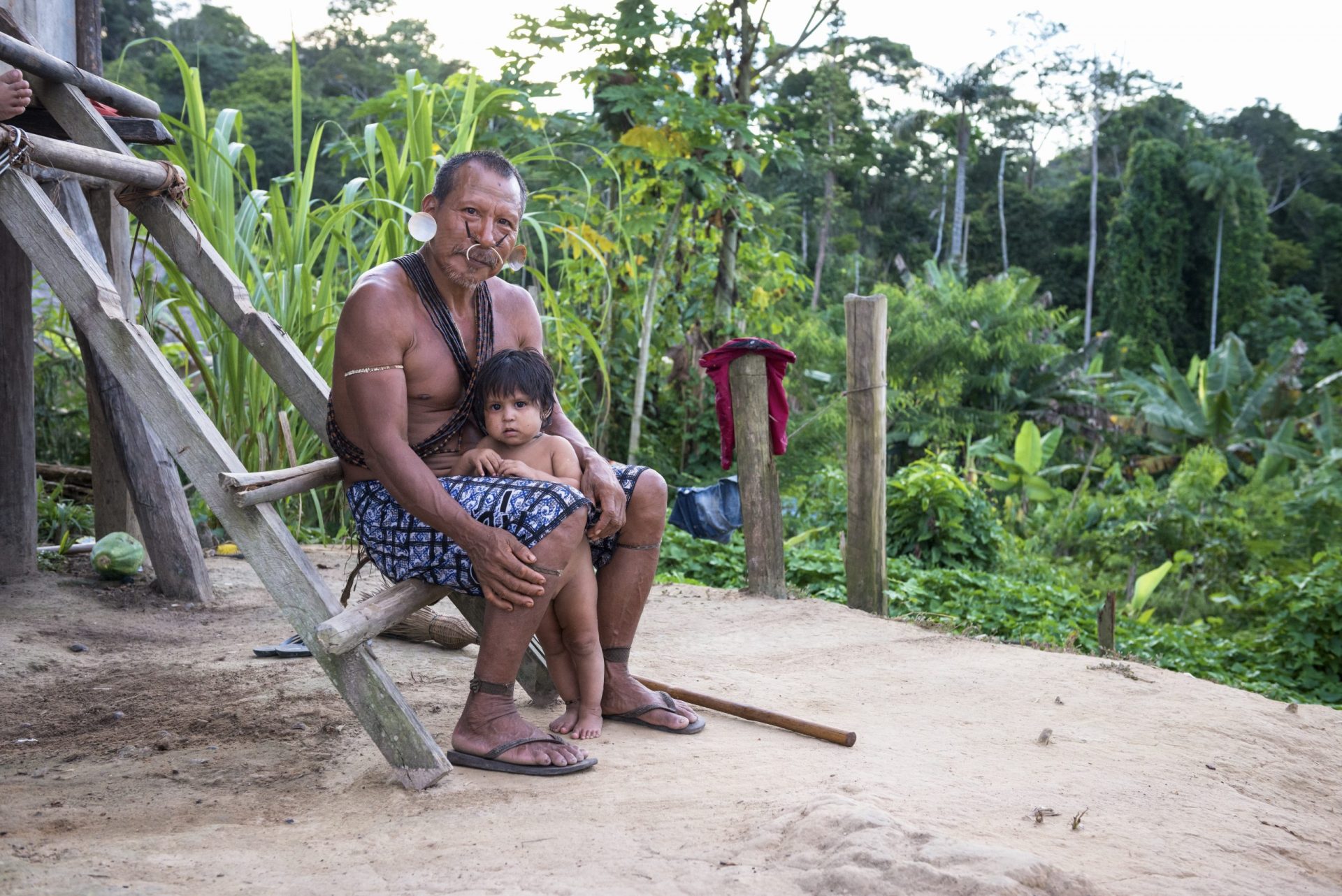
There was a conversation that you had with a tribal leader about the fact that these problems weren’t caused overnight and they won’t be solved overnight. Is there just some reality to the fact that a lot of this is intergenerational stuff as well?
Yeah, of course it is. I think that the teachings that we pass on to our children will continue and the teachings we were given will continue. But we also have the opportunity of changing that because if we weren’t taught something that is essential and important to one or to many, we can learn it on our own. We don’t have to just wait for it to be handed to us.
That’s funny that you should say that quote, because it’s come up a lot again recently. I believe in full circle, I think things come back for a reason. When you see patterns in your life, you have to wonder, ‘What is this about? Why is it here?’
There’s been a pattern for me in a geographic location that was on my radar, but kind of distantly. And now all of a sudden, a bunch of conversations I’m having are leading me to this one geographical location, and I’m asking, ‘Why? What’s going on?’
So the fact that the quote from Beto Marubo [Brazilian tribal leader] who says, ‘This problem didn’t happen overnight; you, by yourself, won’t solve it overnight.’ That for me is a test also for me individually, because I’m a sprinter. I see something, I want to get it done. I feel ground satisfaction in my to-do list and checking it off. Same thing with the problems of the world, I want to solve everything.
But we have to remember collectively that we are in it for the long run. This is a marathon we’re running, and you don’t just jump off your couch and run a marathon. It’s discipline, it’s training. It becomes a goal and a vision for what you do and who you are. This is what my work has become.
I realised that when I said yes to doing a film about the story of the indigenous people of this territory, I didn’t know at the time that this was going to be a lifetime involvement. I find that it’s very challenging because I want to see big shifts, but they’re not happening quickly. They’re happening excruciatingly slowly, but the commitment is reinforced on a regular basis.
I feel that that’s part of resilience and adaptation as well, which is a skill we all need to learn. We’ve learned it hopefully a bit during this pandemic and it’s been tough because adaptation and resilience is tough. But I think that’s what will allow us to stay here on this planet.
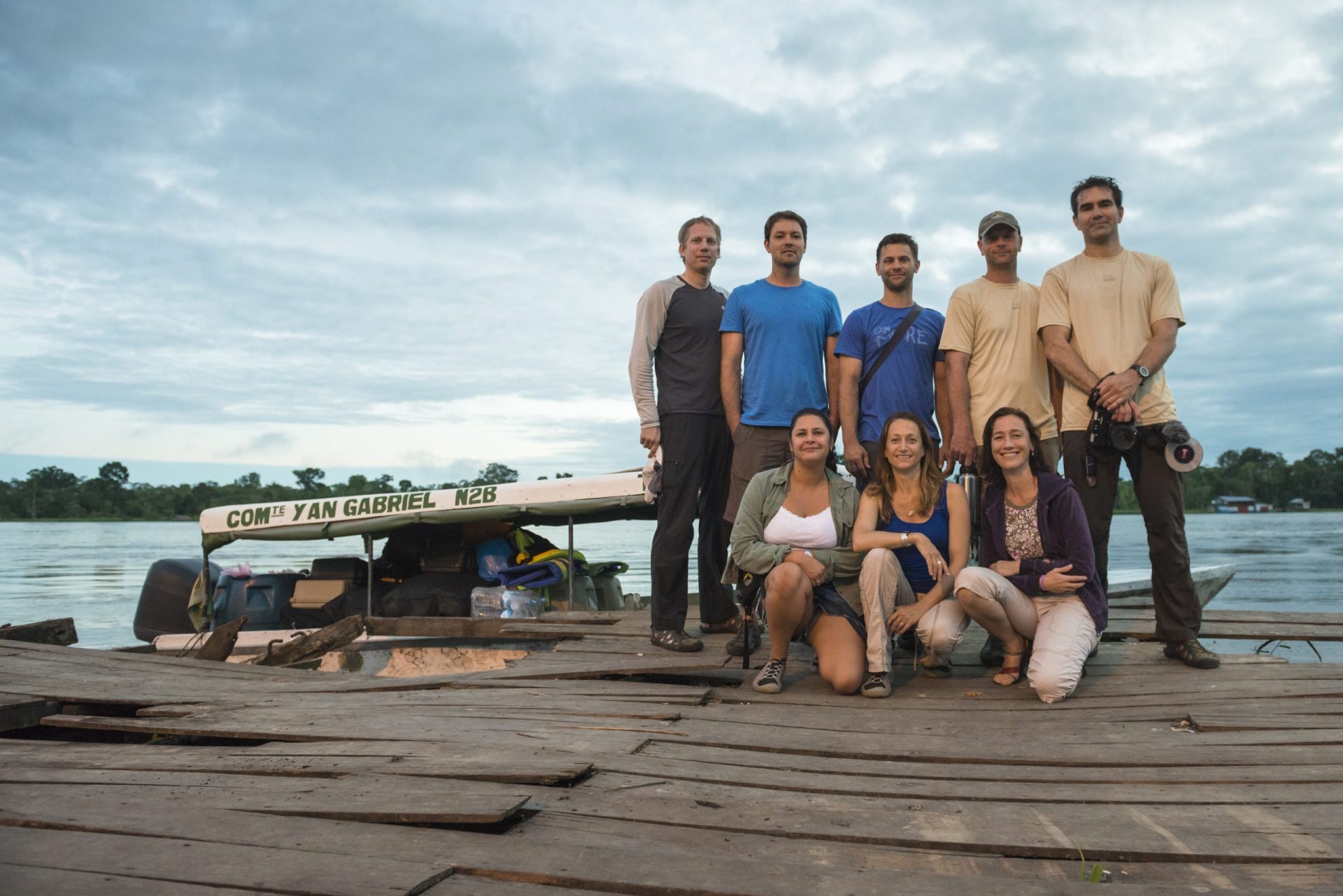
How do you keep that momentum? How do you keep the course of a marathon?
Not every day. I accept that there are days I can’t or I do less. But, I do it at home if I can’t do it in a much more global sense. I have to also remind myself and reinforce this idea that no matter what I’m doing, if the intention is there, there’s movement forward.
I usually say yes to the conversation, and then I figure out whether or not it was worth having, as opposed to analysing it beforehand and then saying yes or no. I think that also is a step forward, because whether I’m talking to you, and there’s going to be an article on it, and somebody is going to read it somewhere and they’re going to be inspired, I don’t know this.
I don’t know what’s going to result from what we’re doing right now. But if I didn’t say yes to the conversation, nothing would happen.
So, that’s a little bit of the same way that I try to stay the course. But I faulter, just like everybody. This is something that we have to be open about. There are days I am sad or I’m upset, or I’m angry because I don’t see change. Or because I read one more thing about taking steps back in environmental laws and you just go, ‘How are we going to make progress?’
Here’s a terrible quote, but I’m going to do it anyway. When I was in high school a long, long time ago, in our school yearbook, I quoted MC Solaar, a French rapper, of all the people to quote. His quote is basically to take a step back to gain momentum, that’s the short version of it.
For me, the quote was important then for whatever reasons as a teenager they were, but sometimes we do have to take a step back in order to be better equipped to spring forward.
That’s why when those days come, when it’s really difficult to feel like I’m making any change or I’m angry because I’m seeing so many steps backwards, or I’m seeing these horrid masks strewn everywhere in the oceans and going, ‘Oh my God, we spent so much time dealing with single use plastic and now we’re back at square one.’ I give myself a break because I am in it for the marathon and Beto Marubo is right.
Like he says, ‘You need to just take a breath, because if you’re going to keep doing this, you need to be well, you need to be healthy. You need to be rested.’ Those are all things that I have put a secondary importance on, but they’re not, they’re primary.
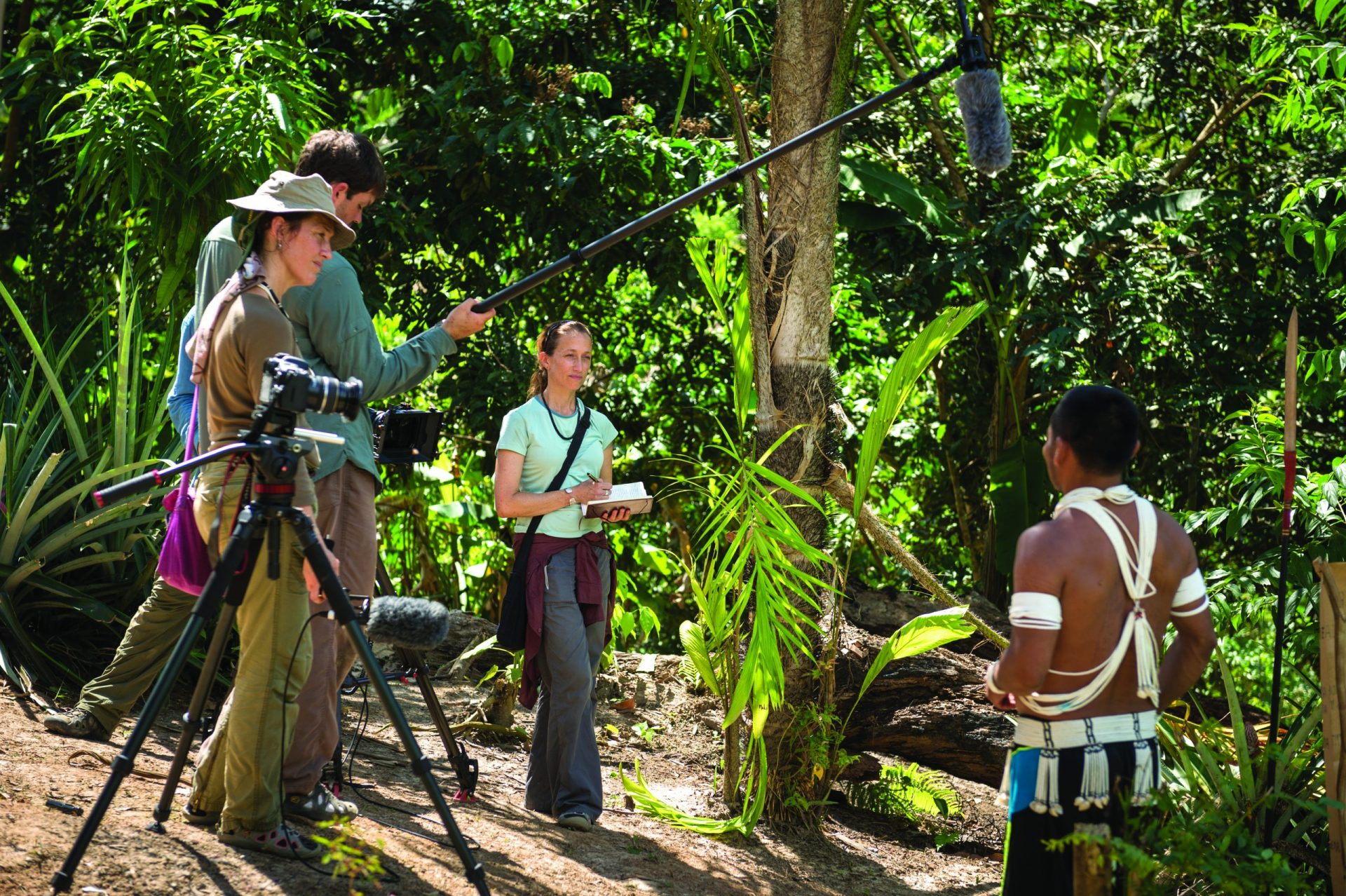
It’s not just a film. You’ve created a movement and you’ve touched thousands of people. Do you sometimes stand back and marvel at the scale of what you’ve done as well?
That’s interesting, you just asking me that makes me feel awkward because relishing any success is a tough one. I know there’s so much more to do, but as I’m hearing you, I’m like, ‘I would definitely recommend that to people.’ But to be honest, I don’t know if I do that enough.
Very recently, somebody said something that struck me; to accept it, you have to accept it on faith and that it’s true, as opposed to fact, data. There’s two sides of me, I’m the chaotic artist on one side. I wouldn’t let anybody in my brain to see what’s going on because it’s just insane and I have too many projects and ideas. And then I have my very organised to-do lists and that very organised to-do list side of me likes to see the data. I like to understand exactly what’s going on and know the whole process.
Beto Marubo’s brother, who is a lawyer, sat down with me when I was in the Amazon and we talked a little bit about what’s going on there. I was there in November showing them the film, which was very daunting. If there’s any audience that I actually care about, it’s the ones who are in the story. They watched the film and there’s no facial expression whatsoever. I’m just standing there watching this entire space of 150 indigenous representatives watching themselves on the camera and wondering, ‘Did I adequately share their message and their story?’
Once the film was over, most of them stood up and walked out of the room and I’m just thinking, ‘What does that mean?’ And then Beto walks up to me and he says, ‘The fact that they didn’t say anything is a really good sign.’ Talk about cultural differences, right? For us in most of our cultures, we want applause, we want praise. So that’s one lesson; don’t assume that the reaction can be properly interpreted by you, if it’s not one that you would necessarily have yourself.
I sat down with his brother the next morning for breakfast and I said, ‘I just don’t know that a film changes anything for you and for the people of the Javari.’ I’m telling this story to the world and maybe a few people in the world shift, or maybe somebody just learns more. I don’t discount it, all the work that I’ve done, I think it’s phenomenal.
I said, ‘But what actually changes for you? What actually changes for the people on the ground?’ And he looks at me and says, ‘You’re not going to have any idea what your film has done. You’re not going to have any idea how your film has impacted people, but I know one thing, your film has saved lives and of that, I’m sure.’ And you realise, him saying it with that conviction, is truth. It is. I don’t have to doubt it, it’s truth, but I will never see it. I will know what that looks like.
But it goes back to what I said about this author and the 4% and good energy and karma, whatever else you want to call it, if you put good into the world, good happens. You have to trust that because it’s not always visible. In those moments, that’s when I look back at something like that, to know I’m on the right path.
I did a speech at a college and months afterwards, a student wrote to me and said, ‘I just want you to know that because of what you said, I’ve changed my major, I’m studying environmental studies.’ And I just was like, ‘My God, it makes a difference. This works.’ We don’t always get reverberations of the work that we do, but those moments are the ones that I need to remember when I have a doubt.

There must be something really personally fulfilling in what you’ve done and there’s power and momentum that you’ve gained. Is there a lesson in there that maybe someone else can hold onto and create?
I think, very simply put, doing good feels good. And not in an ego-driven way. To know that you have made impact and that you have created a shift, actually just feels good. It’s been proven, they’ve done studies on it, that whether you donate or whether you’re a helping hand or you’re going into soup kitchens, I believe endorphins are released when you’re doing good. There’s something also just physiologically that happens.
I don’t mean to completely downplay understanding the work that I do and the impact that it has, but I’m also on this constant need to do more and that’s my own drive. That’s my own need. But there are moments that I can just take inventory and just go, ‘Actually, I’ve been working at this for a long time.’ I’ll tell you maybe why this feels this way, is because the work that I’m doing in the Amazon is very broad and it’s long-term because the film acted as a catalyst for what I’m doing now.
I’ll take another example that has a shorter time span and a different feel to it. I worked in Madagascar last year doing a film and I met a woman who had started a school for this small village outside of the capital city and for the farming community there because they didn’t have secondary education, they just had primary education.
She was doing all she could to keep the school open, but they didn’t have enough funding to keep the teachers. Mind you, they had five teachers and it cost 25 euros a teacher a month. That’s 125 euros a month for five teachers to keep a school open, to which my response was like, ‘I know five people who could give 25 euros. Let’s figure this out.’
So in that moment, I said, ‘I’m going to help you keep this school open.’ And a year and a bit later, we raised a total of $8,000, which has not only kept the school open, they have renovated the outside of the school. They have rebuilt the toilets, they have leveled part of the grounds to have a playing field and they’ve used the earth from that to create a wall around the school property because livestock was coming in and eating the vegetables she was trying to grow for the kids. So they’ve built a traditional mud wall around the property, and they’ve taken a permaculture course so that they can actually create a proper garden to then sell the goods, to then pay the salary of the teachers sustainably.
I’m thinking, this is what’s happened in a year and a bit, with not a whole lot of funding. Looking at something like that, because I can see a tangible change which is really helpful in me understanding the impacts that we can have. I wasn’t alone in doing this and there’s somebody on the ground helping, there’s people donating money. That’s the other lesson; nobody does anything alone, even if it looks like it.
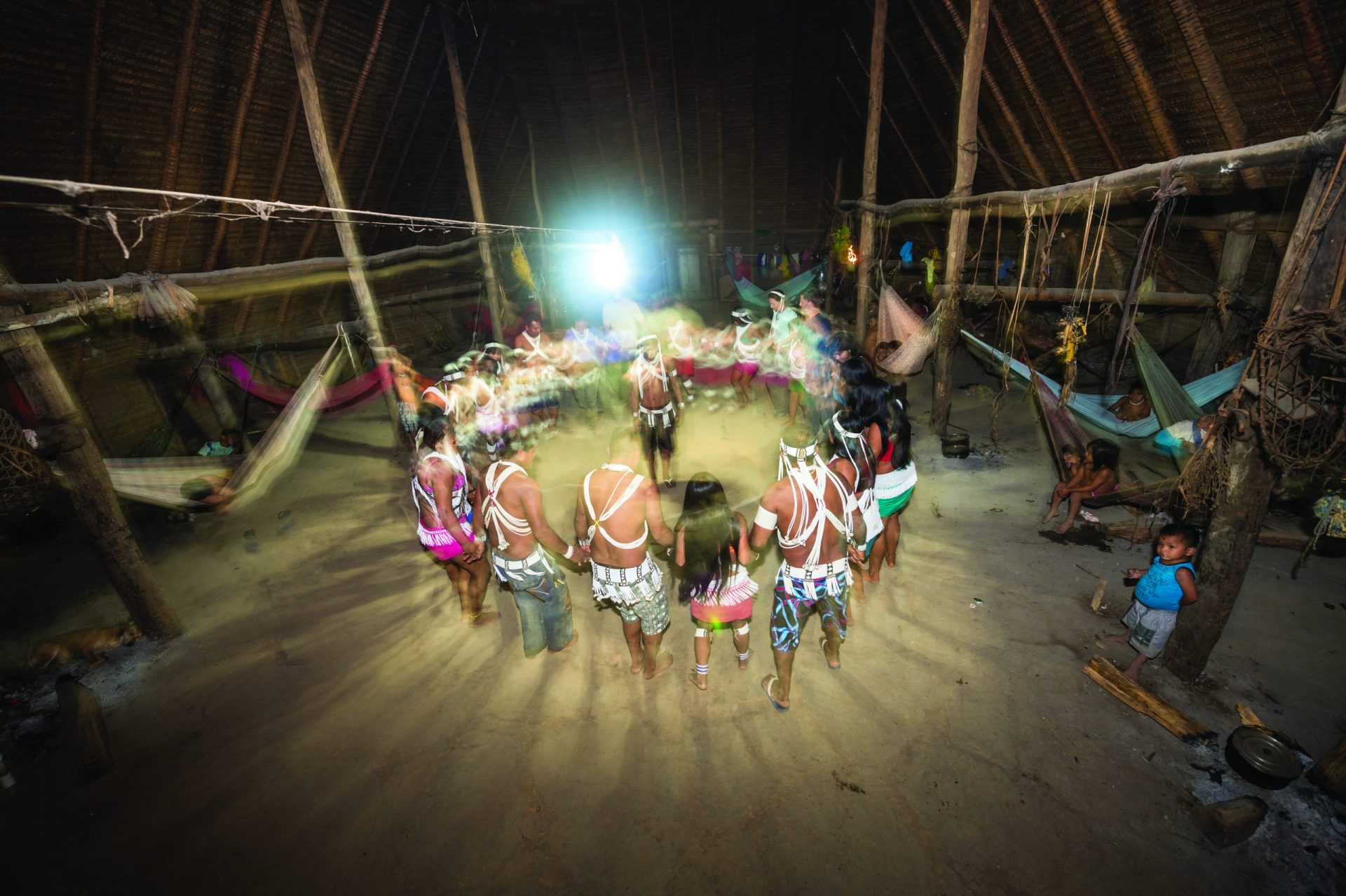
With the work that you do, it does require community. Does it just come down to having a really strong vision, being very vocal about it and people will get behind you?
It’s a lot of persistence. I don’t give up, period. I just don’t. It’s being persistent and again, saying yes to the conversation. I talk about this work all the time. If somebody asks me what I’m doing, they will get the down low. That’s part of it. If people around you in your community hear you with a genuine dedication, it registers and someday somebody’s going to go, ‘You need to meet professor so-and-so,’ or, ‘I have a guy who was an engineer’, or, ‘There’s this school down the road that could really use whatever.’
I feel if you’re persistent in those conversations, it falls on the right ears eventually. There’s no denying that my network is perhaps different than a lot of people’s. Because of the work that I do, I’ve met scientists or I know somebody who knows somebody and I’m able to get to those people. But again, you never know who you’re talking to.
I ended up at a conference of the Himalayan Consensus in Nepal. I met a guy who, for all other purposes, was not somebody that I would cross paths with because he is the tech guy in San Francisco. I was telling him what I was doing and he’s like, ‘Oh my God, you need to meet my friends so-and-so and so-and-so.’
Well, so-and-so and so-and-so have now given some of the seed funding for the Javari Project. Simply because I talked to everybody about what I do, and this person said, ‘These guys would love what you’re doing, you need to have a conversation with them.’ And now we’re on the phone every two weeks talking about what we’re doing and how we can move the project forward.
I just did an interview the other day about some of the similar issues and this woman says, ‘How can we actually talk to the mother of four in her apartment who barely has anything? Or how can we talk to people who just don’t have the same access?’ And I was like, yeah, it can sound pretentious to say, ‘Well, this is how I’ve done it.’ I don’t underestimate the difficulty that people would have in creating change, which is why I go back to say, do it at whatever scale and level you can.
It’s not for the faint of heart and it doesn’t have to be your career. It can just be your passion. I don’t think that people should feel that they have to shift everything they do and save the planet because I can’t save the planet and I’m trying every day.
So, I do hope that it is understood and read as, do what you can in the way that you can. Don’t beat yourself up about it, make it realistic.
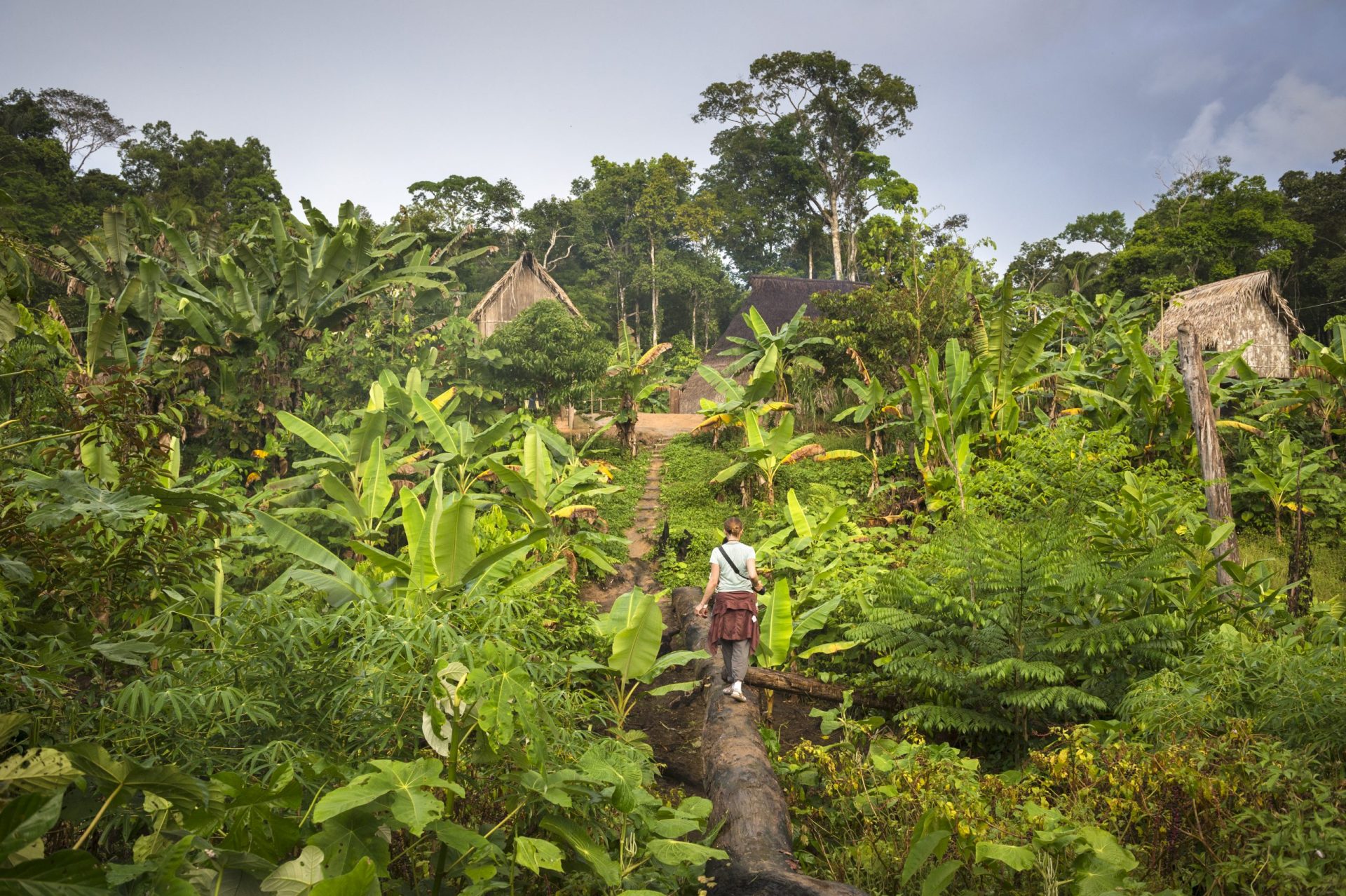
When you’re talking about this vision, is there a line between just sounding like a crazy person when you’re talking about what you want to do, and actually the potential of being able to do it?
Well, I think you have to be a little bit crazy to have the thoughts of creating big projects that would protect people and places. But, I think it depends on how you share your question, how you share your message. It can appear crazy.
For example, I’m working on six, seven, eight different ideas and projects that are interconnected, and I know how they’re interconnected, but I wouldn’t necessarily share all of that with everybody because it’d be too much. I think it’s the same way. When you have a conversation with somebody, share with them what is relevant to your conversation with them.
I don’t always do that because I’m being asked questions like in interviews, so I’m giving a little bit more of everything. But if your goal is to get somebody to donate to your organisation, or your goal is to get an artist to contribute graphic design, focus on the ask, focus on why you’re having that conversation. You don’t need to always share everything because then you might appear a little wackadoodle.
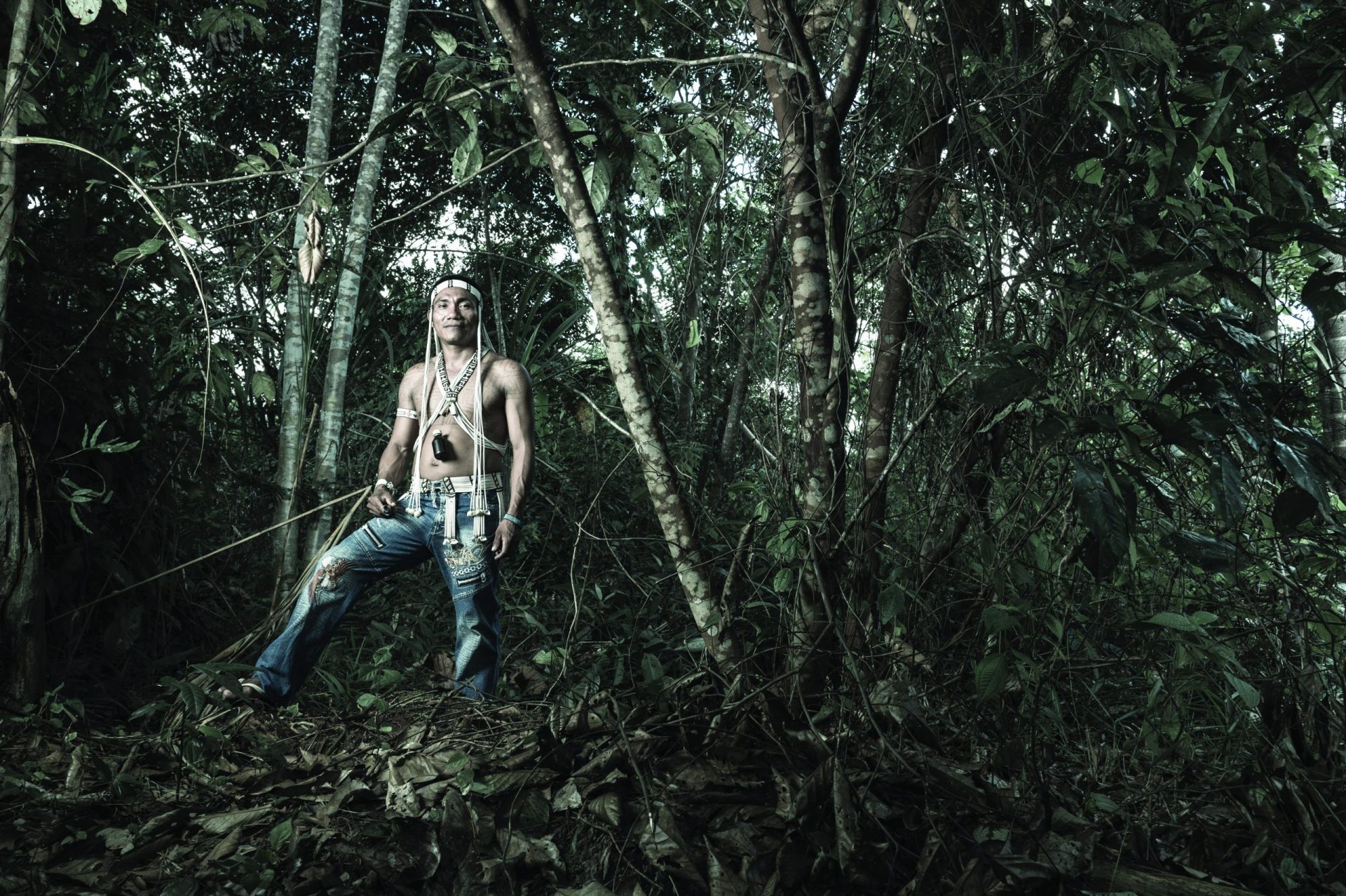
Sometimes people feel like the scale of the problems are so big and they ask, what can I do? The work that you’re doing, is it about making things accessible as well?
That’s something that I’m working more on, actually. I talked about how we can reach people where they are in a way in which they will be receptive. Making it accessible is a big part of that. I feel that the whole notion of convincing people that saving something for the sake of that thing, for me, that’s enough, but it’s not enough for people.
If I’m going to tell you, ‘We have to save the rhinos,’ you’re going to have a lot of people that are going to be like, ‘what do I care about rhinos? What do rhinos have to do with my life?’ Again, it’s about making it scalable.
This is where my brain gets too complex in the interconnection of absolutely everything in the universe and where I go, ‘Okay, take a step back because it’s not for everybody.’ But, I would say again, take steps where you can and how you can and not make it too abstract or obtuse. I can deal with abstract and obtuse, so I don’t think anybody else should have to.
There’s people who are looking clearly at something that’s measurable because they understand that what’s measurable, you can then put on a paper and you can say, this is what happens when this happens and when this happens and when this happens. There’s cause and effect. I think there’s some things that are not going to have that kind of measurement.
Have you had to develop skills along the way to compartmentalise some of the chaos and the abstractness that goes on, the creative side that creates these possibilities?
It has been a struggle, but it’s about getting the right people on board. If you look at the potential, the potential of a person, the potential of a project, the potential of an idea, the capacity has to match the potential.
It’s been about three, four years now that I have been saying the potential of what we can do, whether it’s in the Amazon, or the potential of what I can do in terms of the number of projects with the number ideas I have is, I think, pretty big. However, the capacity doesn’t match.
For me, it’s been a question of finding the right people to get on board and help and who have perhaps those skills that I don’t have, or who have the experience. Or just simply, I don’t have enough time to do everything, so I need to allot.
Creating that team is key. I have found somebody who is running the Javari Project with me. Or I know I can take a step back and go, ‘Okay, I can do these things because I know all of this is in your hands and I do it with my eyes closed.’ When I trust somebody, I trust them. I hand over a task and to-do list and then I walk away. If there’s a problem, come see me, but if I don’t hear from you, I’m assuming everything’s fine and that you’re moving forward.
One of the things I’ve learned is I can’t do it all by myself and I do need a team of people. That’s tough too, honestly, because one, I don’t want to manage people, I want to hand things over and let them run with it. But I have to say on top of all of it, as well, just to know where all the pieces are going.
That’s been one learning in terms of organising, not just my mind, but just organising the projects. Something that I keep thinking back to is, no incredibly successful person ever did it alone. It doesn’t matter what sector of society.
I might be the spokesperson for these projects, but there’s no way I’m doing it by myself. To remember that, and to honor those people that are helping get things done, I think is really important.
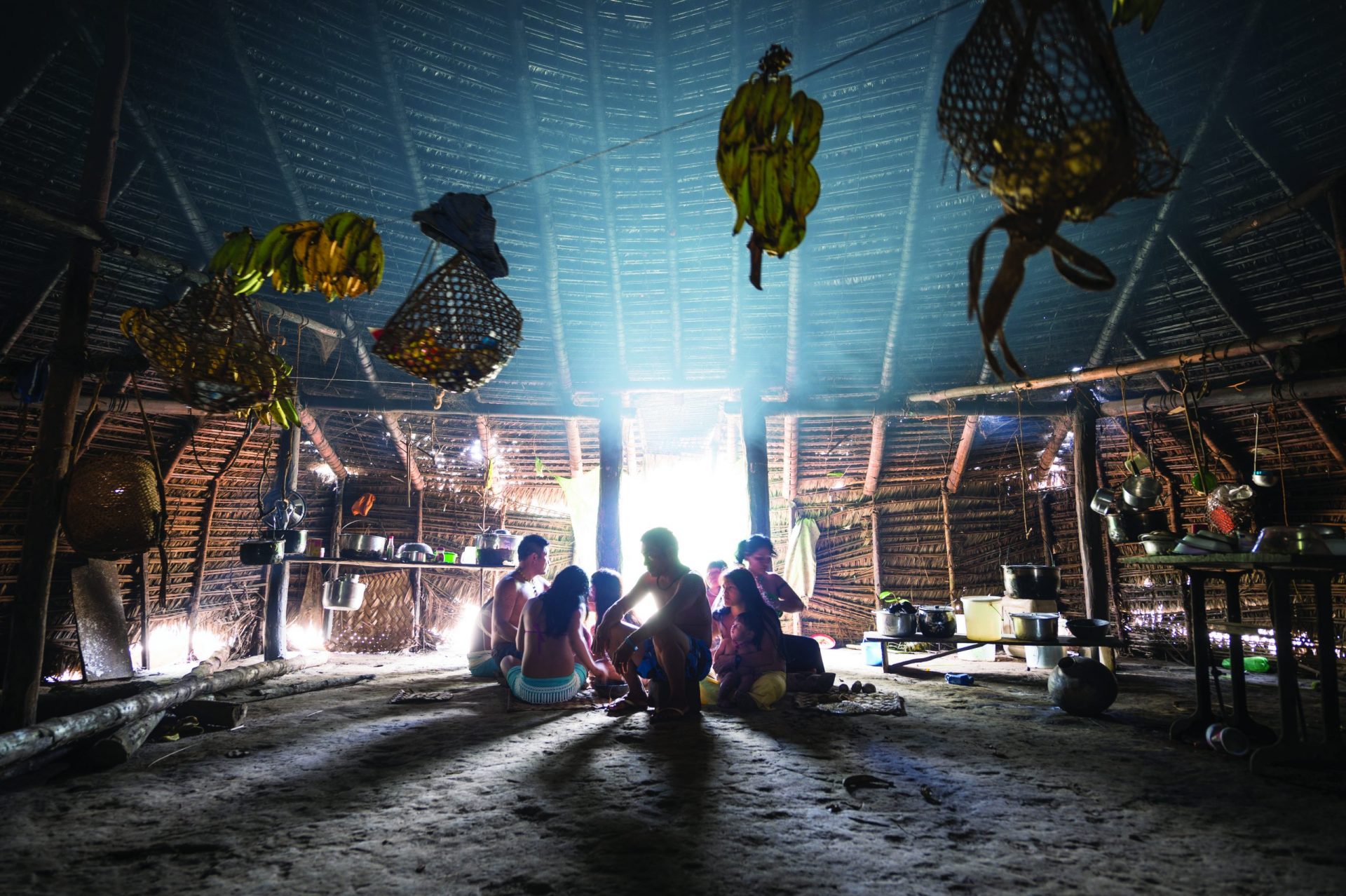
Often when we think about some of the things that we need to really focus on, it seems like a one-way street, but I feel like there’s so much that we can learn from indigenous communities structures and ways of thinking. Have you come away with a really big shift in terms of how you see things from your time in the Amazon and your time on the film?
Oh yeah, no doubt. My lessons learned in the Amazon have been very clear. They’ve been painful, some of them, but there’s no doubt. One of them in just a very broad way, is that we have come back full circle to understanding our relationship with nature, it’s just that we’re doing it in a much more complex world. We’re using a lot of terminology; sustainability, LEED-certified, organic, seasonal, reasonable.
There used to be no other way, because that was survival. You didn’t destroy the home in which you lived because you wouldn’t survive. You wouldn’t have clean water. You wouldn’t have food. You wouldn’t have shelter. It just makes so much sense. It’s so basic to think about, but because our world is complex, the situation has become complex and so have the solutions.
There was a conversation I had with an indigenous person, when I asked him, ‘how do you live sustainably in your environment?’ He looked at me like I was crazy. Even after I explained sustainability, he’s just like, ‘What?’ Because there’s no other way, there was no question. And he answered to satisfy me because he understood what I was looking for, but there had never been a question for him about how to live in balance with your environment.
That’s a big one that I walked away with; how far we’ve come from just that basic root instinct and knowledge. But also how wonderful it is that we’re coming back to it. Perhaps it’s because it’s what I’m looking at, but I’m seeing more and more people in general valuing indigenous knowledge. You look on social media, there’s a lot of indigenous voices represented actually, in their own voices. It’s not like we’ve had to create a bridge to let them share their message.
There’s one of my pet peeves, by the way, when somebody says, ‘You give voice to the voiceless,’ I get really upset. I’m like, ‘They’re not voiceless. We’re just not listening.’ And perhaps we’re also not listening because we’re not giving them an opportunity or they don’t have the same access.
My job is to act as a catalyst or a bridge. I have access to certain platforms and I’m going to use those platforms to share their voice, but they have a very strong voice. I think we need to give them more opportunities.
So the lessons that I’ve learned in the Amazon have been a lot with indigenous people, a lot also just on my own in nature. I would love for more people to have those opportunities to hear this and to feel it. This is part of my vision for the years to come, is to create more opportunities for people to have those experiences without traveling.
Going back to the whole tourism thing, I’m a spokesperson for the TreadRight Foundation and we’re trying to shift an entire industry in terms of its policy on humans and ecology. Most people don’t have the luxury of travel, so I think it’s up to us to bring it to them, through documentary film, through conferences. But I think, again, in terms of technology, I feel that VR could do it right. Immersive experiences as well. How do you bring that feeling, that sensation of being in the jungle and what you get from it, how do you bring that to people where they are?
When are we going to see the film in this part of the world?
We have a distributor, Gravitas Ventures and we don’t have a release date yet, but the the target is Q,1 Q2 2021. That’s the hope. I don’t know where it’ll show yet, but that’s when it’ll be made available.
We’re going to launch another educational effort. For two years, we’ve been using Skype in the classroom to reach students around the world. We’ve reached about 7,046 countries, a little more because I’m doing three next week.
The next phase of it is a partnership with an academic institution to create a curriculum that will accompany the film so that students and teachers can have the conversations around the importance of biodiversity, the role that indigenous people play in conservation, etc, etc.
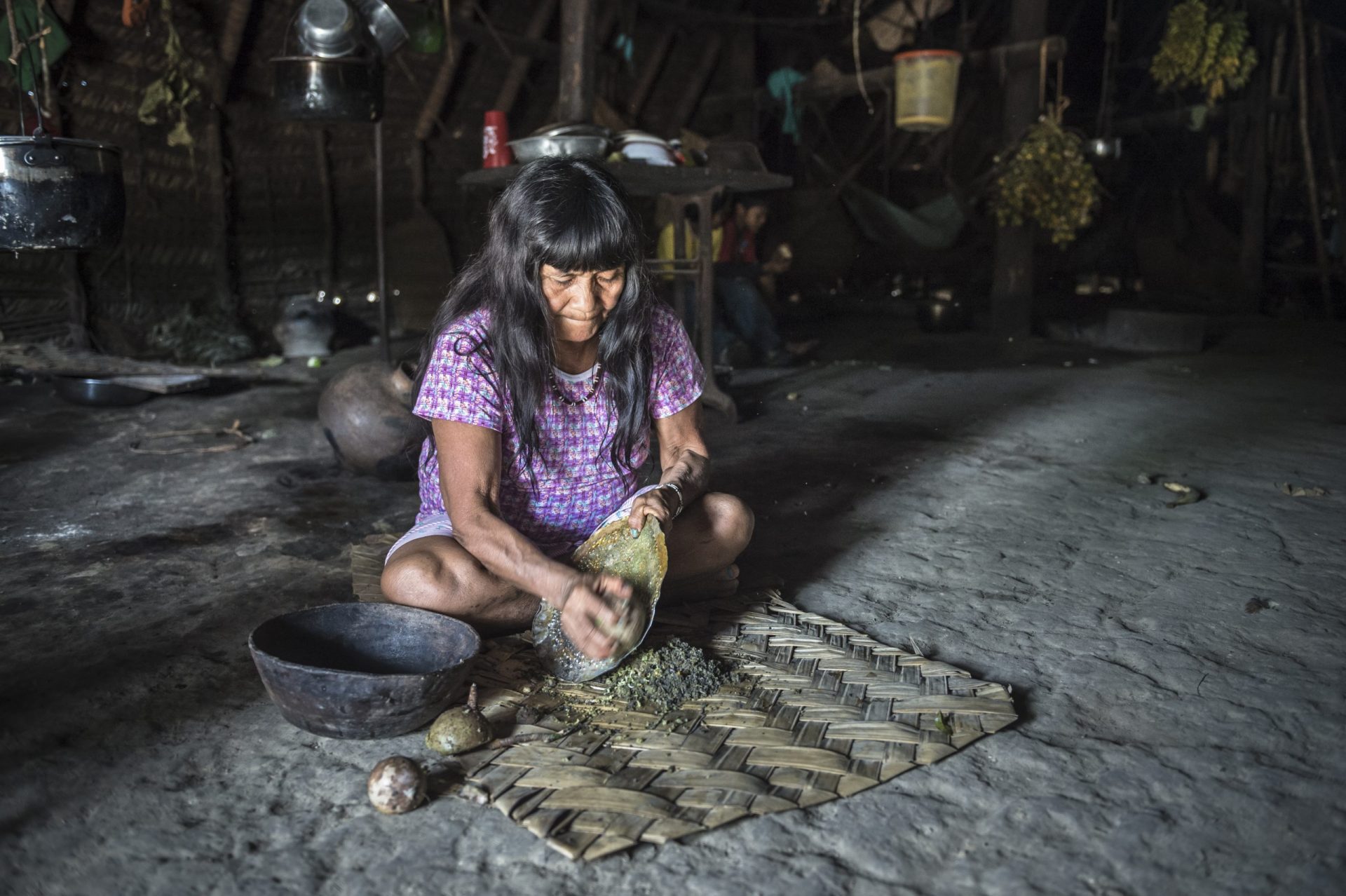
Zoom has been one of those things that’s accelerated this year. Has that helped speed up that?
It hasn’t changed much for me in terms of the education around the film, because we’ve been using distance learning, distance access, for years. Students who had an account could just look at a whole list of people who were donating their time whether it was, a photographer or scientist in the field, an artist, and they could access them and have them come into the classroom for 30 minutes.
It’s been available for a while, it’s just that we’re now more aware of it. I feel that it’s not the same. It does not replace in person at all, but in-person isn’t always realistic anyway. I do think we should take advantage of it, what more can we do? I do feel that people who are in front of their video conferences all day, because they can’t go to their office, are probably not going to be so warm and fuzzy to one more online webinar, but it’s the way the world works right now.
How can people get behind what you’re doing and support the foundation?
On the Tribes On The Edge website, there’s an option to donate. We have a fiscal sponsor in the US. Donations will go towards the educational outreach for the film. We are launching the Javari Project. We’ve incorporated in the Netherlands and we will be creating a website in the next couple of months to make that accessible to the public.
When someone hears you talking, or they see your film or they hear your Ted Talk, what’s one of the key things that you want someone to think about the next day?
The interconnection of everything, how they are connected to everything. I know it’s a big lofty goal for me to hope for, but that’s what I hope for. On a more tangible side, I hope they just look at their everyday actions and see what they can do to do some good, or lessen the negative, because we’re all capable of it.
I want people to feel empowered. I don’t want people to feel guilty. I don’t want people to feel overwhelmed because it can be. I want people to feel empowered and to take that feeling of inspiration, if they have any from anything I’ve said, and move it into action. Because I think that’s the important part, is to take that feeling and do something with it.
